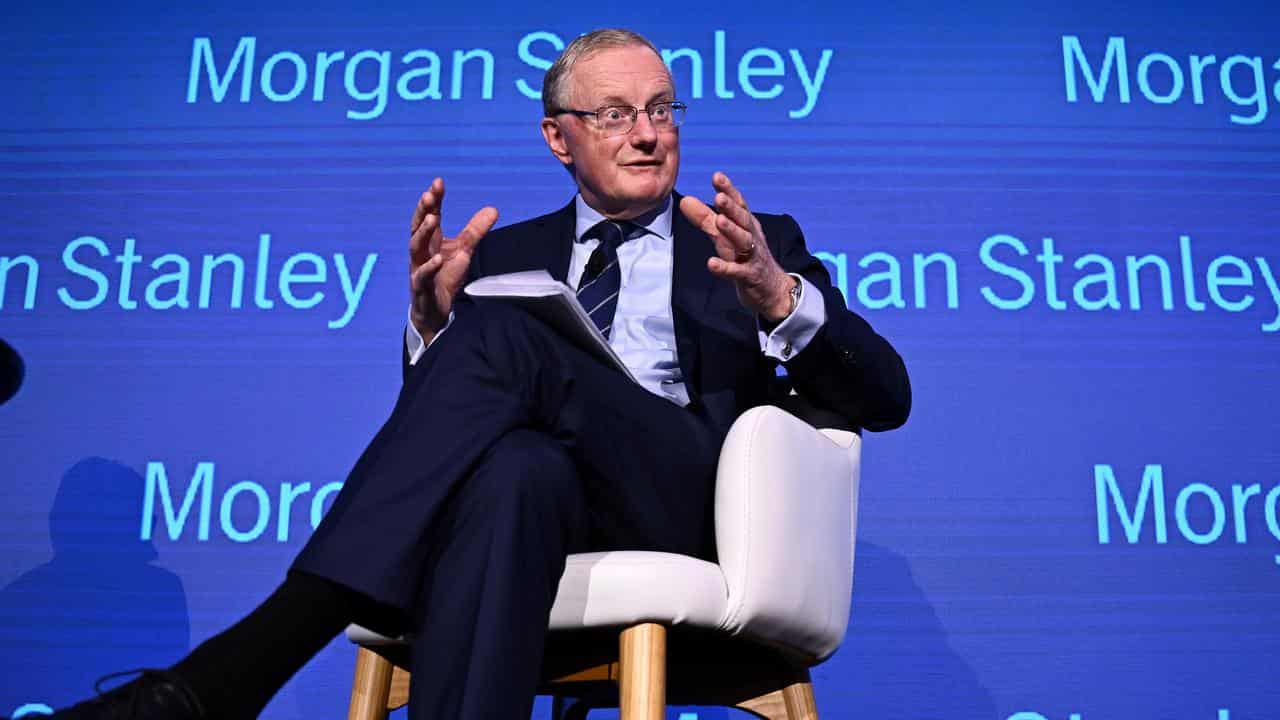
Borrowers have been granted another month of interest rate relief as the fight against high inflation appears to be going to plan.
The Reserve Bank left interest rates untouched at 4.1 per cent in September in a move that was almost universally expected.
The back-to-back months on hold follow four percentage points of increases since May last year.
In outgoing governor Philip Lowe's final post-meeting statement as head of the central bank, he said the latest data was consistent with its return to the two-to-three per cent target range by late-2025.
This data included monthly inflation numbers, which showed a convincing moderation in consumer prices from 5.4 per cent in June to 4.9 per cent in July.
The board also ingested slightly softer jobs market data and a subdued quarter for wage growth.
But the governor said inflation was still too high and stepped through now-familiar risks to the outlook, including services and rent prices.
The central bank also kept the door open to more increases if needed.
"Some further tightening of monetary policy may be required to ensure that inflation returns to target in a reasonable timeframe, but that will continue to depend upon the data and the evolving assessment of risks," a post-meeting statement read.
Commonwealth Bank economist Belinda Allen said there was no catalyst for an interest rate hike in September and she didn't expect one for the rest of the year.
"At this stage inflation is tracking at or below the RBA’s implied forecasts," she said.
The economist said September quarter inflation data could come in strong enough to trigger another hike, but she said it would need to come in "substantially higher" than the central bank's predictions.
Even with no more hikes, it remains unclear how the economy will fare under the tightening to date.
Dr Lowe singled out "significant uncertainties" hanging over the economic outlook, including the risk of persistent service inflation, a hard-to-read consumer sector and a rocky Chinese economy.
Treasurer Jim Chalmers said Australia was not immune to the slowing Chinese economy under pressure from ructions in the property market.
"We know that there are challenges ahead, but we are well placed to deal with them," Dr Chalmers told parliament on Tuesday.
Shadow treasurer Angus Taylor said he was deeply concerned about the prospects for Australia's economic growth.
"I want to see the whole government treat the economic challenges that Australians are facing as the first, second and third priority," he said.
Some economists remain concerned the RBA has tightened more than necessary.
AMP economist Shane Oliver said the risk of a recession next year was still "very high".
"Continuing to raise interest rates will only add to the already very high risk of unnecessarily knocking the economy into recession," he said.
"At the very least, the economy is likely to have slowed substantially by year end or early next year with unemployment starting to rise faster than the RBA is allowing for."
The September meeting was the last under the leadership of Dr Lowe, with deputy governor, Michele Bullock, taking on the top job later this month.
Dr Lowe is due to offer some final remarks on his time as governor during a speech on Thursday.

